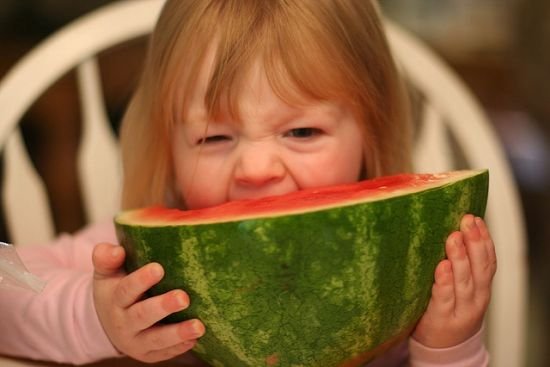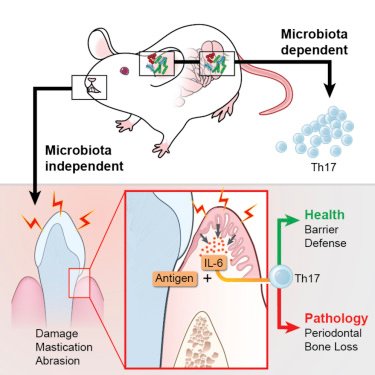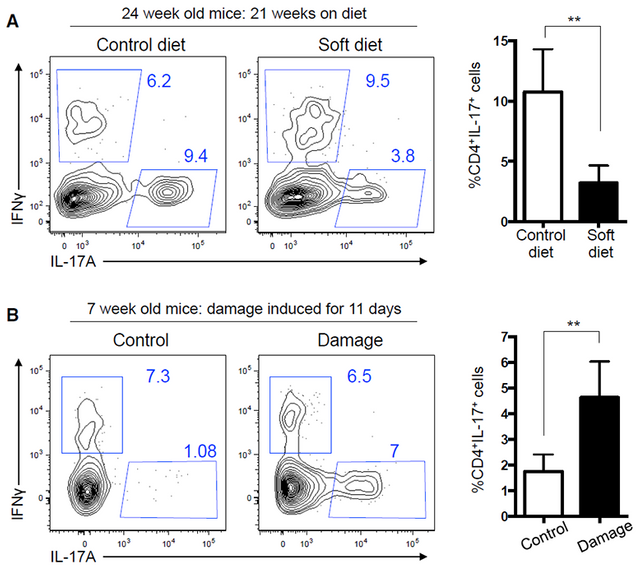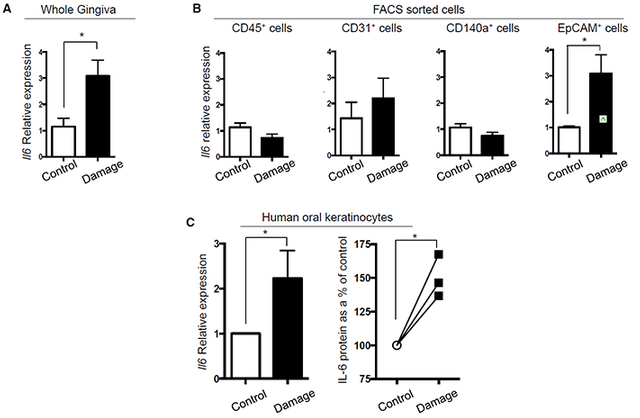Chewing Food Boosts Oral Immunity Barrier
Many recognize the obvious benefits of chewing food. If we want our internal organs (such as our stomach and intestines) to process the food more easily (giving them less work and taking less energy), then we chew our food properly.

source
It's not just nutrients that help to support a healthy immune system, but the simple action of eating itself is important.
More health benefits have been demonstrated in a new study from researchers at The University of Manchester and National Institutes of Health. The journal Immunity published a study last week showing that chewing our food can boost our mouth's immune system and protect us against illnesses.
Specifically, the immune cell Th17 can be stimulated when we chew. This immune cell is important in protecting us against bacterial and fungal infections that are commonly found in the mouth.
The rest of our bodies, like our gut and skin, stimulates Th17 cells through the presence of friendly bacteria. This was assumed to be the case for our mouth as well, but the researchers discovered that the damage from the abrasion of chewing induces the gums to activate the same pathway-mechanisms that friendly bacteria engage in to act upon the Th17 cells.
Lead researcher Dr Joanne Konkel remarked on the power of our immune system:
"The immune system performs a remarkable balancing act at barrier sites such as the skin, mouth and gut by fighting off harmful pathogens while tolerating the presence of normal friendly bacteria."
To start their research, they examined IL-17+ T cells in mouse gingiva. TH17 cell frequency increases with age, but they were able to device tests to isolate the age factor to "demonstrated an age-dependent, gingival-specific expansion of Th17 cells."

source
The research was extended to human gingiva by evaluating IL-17+ cell frequencies in younger and older healthy human volunteers. The young were between 18-25, and the "old" were between 40-50 years old.

source
Shifting microbial communities were also accounted for to determine they did not correlate with the Th17 cell development.
Increasing the level of gingiva damage in young mice promoted the stimulation of gingiva Th17 cells. Gingival damage was stimulated by rubbing a sterile cotton applicator once every other day for 11 days. Induction of mechanical damage through barrier abrasion resulted in increased frequencies and numbers of Th17 cells.

source
The research data combined to demonstrate local mechanical damage of the gums induces rapid production of IL-6, which is a dependency of the gingiva Th17 cells.

source
The new research shows that unlike other barriers in the body that fight off pathogens and promote friendly bacteria, our mouths act as a barrier in a different way to stimulate Th17 cells through mastication. Mastication itself can induce protective immune responses in our gums.
This good news is not without its negative drawback. Too many Th17 cells can contribute to periodontitis which has been linked to other diseases like diabetes, rheumatoid arthritis, heart problems and pre-term birth. Inflammation in the mouth is linked to the development of diseases in our body.
Our mouths act as the most common entry point for many pathogens, unfriendly bacteria or fungi to infect our body. Understanding the specific behavior that regulates our immunity (starting at the oral barrier) can eventually lead to new treatments to deal with inflammatory (and other) conditions that can possibly be prevented through better oral care.
Simply chewing our food is a good place to start.

References:
- Research reveals surprising health benefits of chewing your food
- On-going Mechanical Damage from Mastication Drives Homeostatic Th17 Cell Responses at the Oral Barrier
If you appreciate and value the content, please consider:
@krnel
2017-01-20, 9:05am

Wow, nice to know. I have always taken longer to eat than most, primarily b/c I chew longer than most do. It's never been a conscious choice, I just always have. Good to know there's a good reason to continue that habit and there are scientific reasons fpr why it's good. Must be why people comment I look much younger than I do :) :)
LOL, indeed. Chewing more is best for digestion, which I mention at the start in passing. Many people don't think about it though and don't chew very much. Not sure if overchewing way way too much does as they suggest in the negative and create inflammation. Thanks for the feedback.
Interesting, didn't know of this @krnel. So perhaps chewing gum is good as it would cause slight damage to the gingiva, and promote stronger basal immunity in the mouth?
Hmm, not sure how the rubbery gum substance goes, maybe that works too. But it does seems to stay at the teeth, depending on the size I guess. But also, how does the sugar affect it? I have no clue hehe.
Tweeted on @Steemit
https://twitter.com/Steemit/status/822508274100662274
Makes me think about Soylent.
This could counter future proposals which aim to replace food with Soylent.
Why? This is only showing that chewing itself, activates immunity cells. I don't understand your comment, please elaborate. Thanks.
Sorry about that.
I thought that maybe in the future people decide to use Soylent (which I think is unlikely haha) instead of eating food. We could counter them by letting them know about this - that chewing is important.
Great article. Really elaborate and great supportive data. Love the visual at the end, really hits home.
This post has been ranked within the top 50 most undervalued posts in the second half of Jan 20. We estimate that this post is undervalued by $11.55 as compared to a scenario in which every voter had an equal say.
See the full rankings and details in The Daily Tribune: Jan 20 - Part II. You can also read about some of our methodology, data analysis and technical details in our initial post.
If you are the author and would prefer not to receive these comments, simply reply "Stop" to this comment.
Stop
We apologize for any inconvenience. You will no longer receive these comments on your posts.